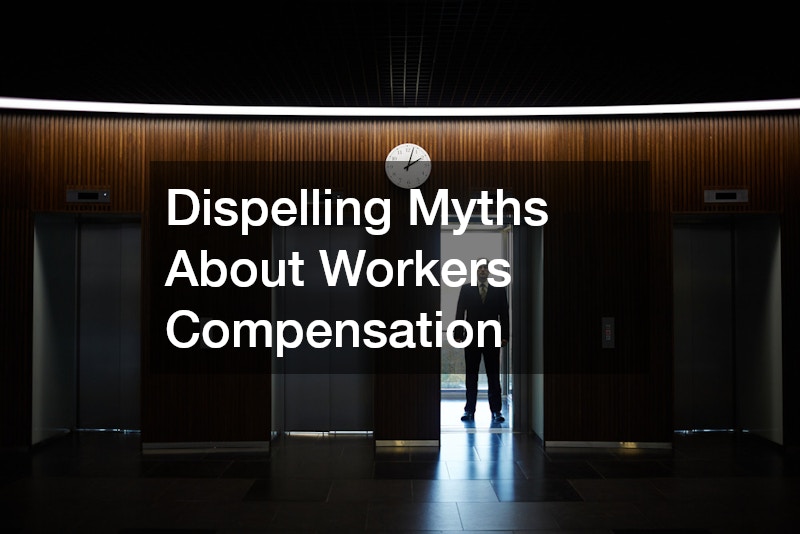
Workers compensation is a vital system that provides financial and medical support to employees who are injured or become ill due to their job. Despite its importance, there are numerous misconceptions surrounding workers comp that prevent workers from fully understanding their rights. These myths can lead to confusion and missed opportunities for injured employees.
In this article, we aim to clear up some of the most common myths and provide clarity on how workers comp actually works.
One of the most persistent myths about workers compensation is that it only covers physical injuries. While it’s true that most workers comp claims are for physical injuries, the system can also cover psychological injuries caused by work-related stress or trauma. For instance, employees who develop anxiety, depression, or PTSD due to their work environment or a specific event at work may be eligible for workers comp benefits. This helps ensure that all types of work-related injuries are recognized, not just the visible ones.
Another common myth is that workers compensation only applies when the employer is at fault. Many employees believe that if they are partly responsible for the accident, they won’t qualify for compensation. However, workers comp operates as a no-fault system, meaning that it doesn’t matter who caused the injury. Whether the accident was due to the employee’s own mistake or an unavoidable situation, as long as the injury occurred during work, the employee is eligible for benefits. This no-fault structure ensures that workers have access to benefits regardless of the cause of the accident.
Some workers also worry that filing a workers comp claim will result in retaliation from their employer. They may fear being fired, demoted, or treated unfairly for filing a claim. However, this is a misconception. It is illegal for an employer to retaliate against an employee for seeking workers comp benefits. Workers compensation laws protect employees from discrimination or unfair treatment after they file a claim, ensuring that they can seek compensation without the fear of repercussions from their employer.
A related myth is that workers compensation only covers medical expenses. While medical bills are a key component of workers comp benefits, the system also provides compensation for lost wages if the employee is unable to work due to their injury. Additionally, if the injury results in a permanent disability, workers comp may provide ongoing benefits to replace lost earning potential. These benefits ensure that workers are supported financially as they recover or adjust to life after an injury, whether temporary or permanent.
Another common misunderstanding is that workers comp claims are always complex and require extensive documentation. While it’s true that some claims may be more involved, many are straightforward and easy to file. The process typically involves reporting the injury to your employer, seeking medical care, and filling out a claim form. Documentation such as medical records will be needed to support the claim, but the overall process is designed to be accessible and not overly complicated. Most states also have systems in place to expedite the claims process, ensuring that employees receive their benefits in a timely manner.
Some individuals also believe that workers compensation is only available to full-time employees. In fact, workers comp laws apply to both full-time and part-time employees, as well as temporary and seasonal workers, in most cases. As long as the employee works in a job that is covered by workers comp laws, they are entitled to the benefits of the system. This ensures that workers of all employment types can access the financial and medical support they need if they are injured on the job.
Finally, many people think that workers compensation is expensive and burdensome for employers. While it’s true that employers are responsible for carrying workers comp insurance, the costs are generally manageable, especially when weighed against the benefits of having a healthier, safer workforce. Most states require employers to carry workers comp insurance, which helps protect both the employer and the employee in case of an accident or injury. Additionally, by fostering a safe work environment and preventing accidents, employers can reduce their premiums and keep costs low.
In conclusion, workers compensation is a crucial system that supports workers who are injured or become ill due to their job. Unfortunately, misconceptions about the system can prevent workers from fully understanding their rights and the benefits they are entitled to. By clearing up these common myths, we hope employees will feel more empowered to seek the compensation they deserve if they are injured on the job. Workers comp provides both medical and financial support during recovery, and it’s important that workers know the full scope of benefits available to them.
.
